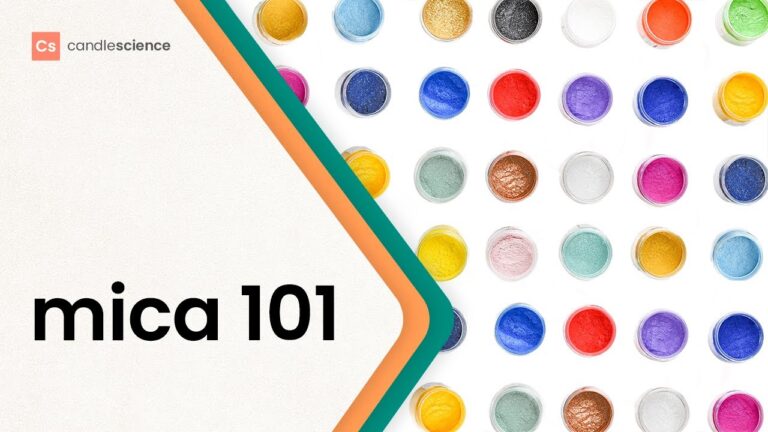In today’s conscious consumer market, ethical sourcing for soap ingredients is becoming increasingly important. Consumers are seeking products that are not only effective, but also sourced in a sustainable and socially responsible manner. From palm oil to shea butter, the ingredients in your soap can have a far-reaching impact on the environment and communities around the world. In this article, we will explore the importance of ethical sourcing for soap ingredients and how you can make more informed choices as a consumer.
Advantages
- Ensures fair treatment of workers in the supply chain
- Supports sustainable farming practices
- Reduces environmental impact by using responsibly sourced ingredients
- Helps build trust and loyalty among socially conscious consumers
Disadvantages
- Limited availability of ethically sourced ingredients: Finding suppliers that adhere to strict ethical standards for sourcing soap ingredients can be challenging, leading to limited options for soap makers.
- Higher production costs: Ethically sourced ingredients often come at a higher price due to the additional efforts and resources required to ensure fair labor practices and environmentally sustainable sourcing. This can increase the overall production costs of making ethically sourced soap.
- Difficulty in maintaining consistent supply: Suppliers of ethically sourced ingredients may face challenges in maintaining consistent supply due to factors such as weather conditions, political instability in sourcing regions, or fluctuations in demand. This can result in delays or disruptions in production for soap makers relying on these ingredients.
What is ethical sourcing for soap ingredients?
Ethical sourcing for soap ingredients refers to the practice of obtaining raw materials in a responsible and sustainable manner, while also considering the social and environmental impact of the sourcing process. This involves ensuring that the ingredients are sourced from suppliers who adhere to fair labor practices, treat their workers ethically, and protect the environment. By prioritizing ethical sourcing, soap manufacturers can contribute to the well-being of communities and ecosystems, while also meeting the increasing consumer demand for products that are produced with integrity.
One key aspect of ethical sourcing for soap ingredients is transparency in the supply chain. This means that soap manufacturers should be able to trace the origins of their ingredients back to the source, ensuring that they are not linked to any unethical practices such as child labor or environmental degradation. By working with suppliers who value transparency and accountability, soap makers can build trust with consumers and demonstrate their commitment to ethical sourcing.
In conclusion, ethical sourcing for soap ingredients is essential for promoting sustainability, social responsibility, and consumer trust in the soap industry. By prioritizing suppliers who uphold ethical standards and transparency in their operations, soap manufacturers can create products that not only cleanse and nourish the skin but also uphold values of fairness and environmental stewardship. Ultimately, ethical sourcing is a critical component of creating a more ethical and sustainable supply chain for soap production.
How can I ensure that the soap I purchase is made with ethically sourced ingredients?
To ensure that the soap you purchase is made with ethically sourced ingredients, look for certifications such as Fair Trade or Rainforest Alliance. These certifications indicate that the ingredients were sourced in a way that promotes sustainability and fair treatment of workers. Additionally, you can research the brand’s sourcing practices and values to see if they align with your ethical standards. By being mindful of these factors, you can make a more informed decision and support companies that prioritize ethical sourcing practices in their products.
Ensuring Transparency and Fairness in Soap Ingredient Sourcing
In today’s market, consumers are becoming increasingly conscious of the ingredients in their everyday products, including soap. It is crucial for companies to prioritize transparency and fairness in their ingredient sourcing processes. By ensuring that the sources of their soap ingredients are clearly disclosed and ethically obtained, businesses can build trust with their customers and demonstrate a commitment to environmental and social responsibility.
Transparency and fairness in soap ingredient sourcing not only benefit consumers but also contribute to a more sustainable and ethical supply chain. By holding themselves accountable for the sources of their ingredients, companies can help drive positive change in the industry and set a standard for responsible sourcing practices. Ultimately, prioritizing transparency and fairness in ingredient sourcing is not only a smart business decision but also a moral imperative in today’s increasingly conscious consumer market.
The Impact of Ethical Sourcing on Soap Quality and Sustainability
Ethical sourcing plays a crucial role in determining the quality and sustainability of soap products. By ensuring that raw materials are sourced responsibly and ethically, companies can create high-quality soaps that are not only effective but also environmentally friendly. Ethical sourcing practices also contribute to the overall sustainability of the soap industry by promoting fair labor practices, supporting local communities, and reducing negative environmental impacts. Ultimately, the impact of ethical sourcing on soap quality and sustainability is undeniable, as it not only benefits the consumers but also the planet as a whole.
Navigating the Complexities of Ethical Sourcing in Soap Production
In the world of soap production, ethical sourcing is crucial for maintaining integrity and sustainability. From the selection of raw materials to the treatment of workers along the supply chain, every step must be carefully considered to ensure ethical practices are upheld. By navigating the complexities of ethical sourcing, soap producers can build trust with consumers and make a positive impact on the environment and communities involved.
By prioritizing ethical sourcing in soap production, companies can set themselves apart in a competitive market and attract socially-conscious consumers. Transparency in the sourcing process not only builds credibility but also fosters a sense of responsibility towards the environment and society. Through diligent research, partnerships with ethical suppliers, and a commitment to fair trade practices, soap producers can create products that not only cleanse the body but also nourish the conscience.
Why Ethical Sourcing Should Be a Top Priority for Soap Makers
Ethical sourcing is not just a buzzword, but a crucial aspect for soap makers to consider. By prioritizing ethical sourcing, soap makers can ensure that their products are made with ingredients that are ethically and sustainably sourced, benefiting both the environment and the communities involved in the production process. From fair trade practices to supporting local farmers, ethical sourcing can not only improve the quality of the soap but also contribute to a positive impact on society.
As consumers become increasingly conscious of the ethical implications of their purchases, soap makers have a unique opportunity to differentiate themselves in the market by prioritizing ethical sourcing. By transparently communicating their commitment to ethical practices, soap makers can build trust with their customers and attract a loyal following of environmentally and socially conscious consumers. Ultimately, making ethical sourcing a top priority can not only benefit the reputation and success of soap makers but also contribute to a more sustainable and ethical industry as a whole.
Ensuring ethical sourcing for soap ingredients is not just a trend, but a responsibility that every consumer and producer should uphold. By choosing products that prioritize fair trade practices and sustainable sourcing, we can support communities and protect the environment. Let’s continue to make informed choices that promote social and environmental justice in the soap industry, creating a better world one lather at a time.



